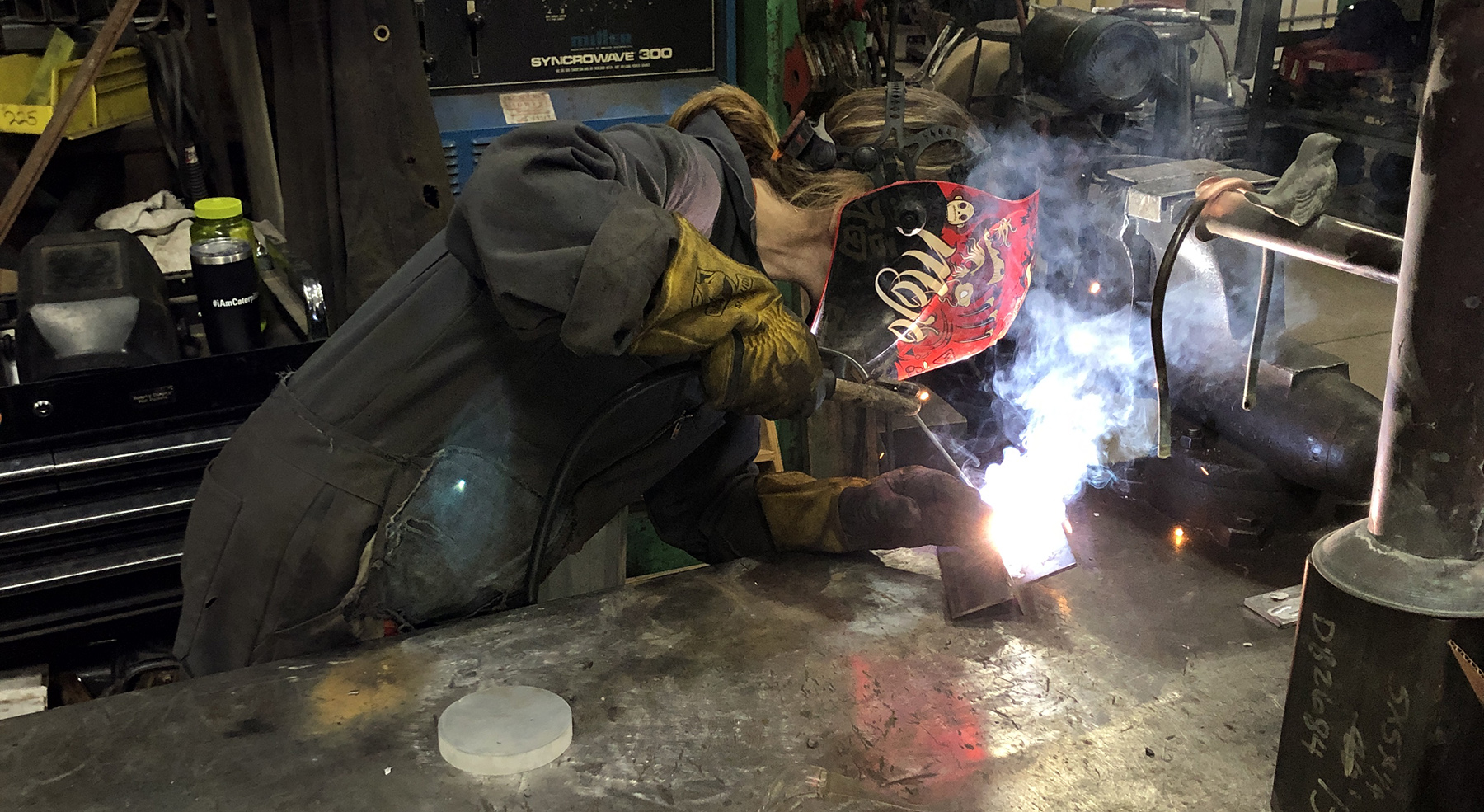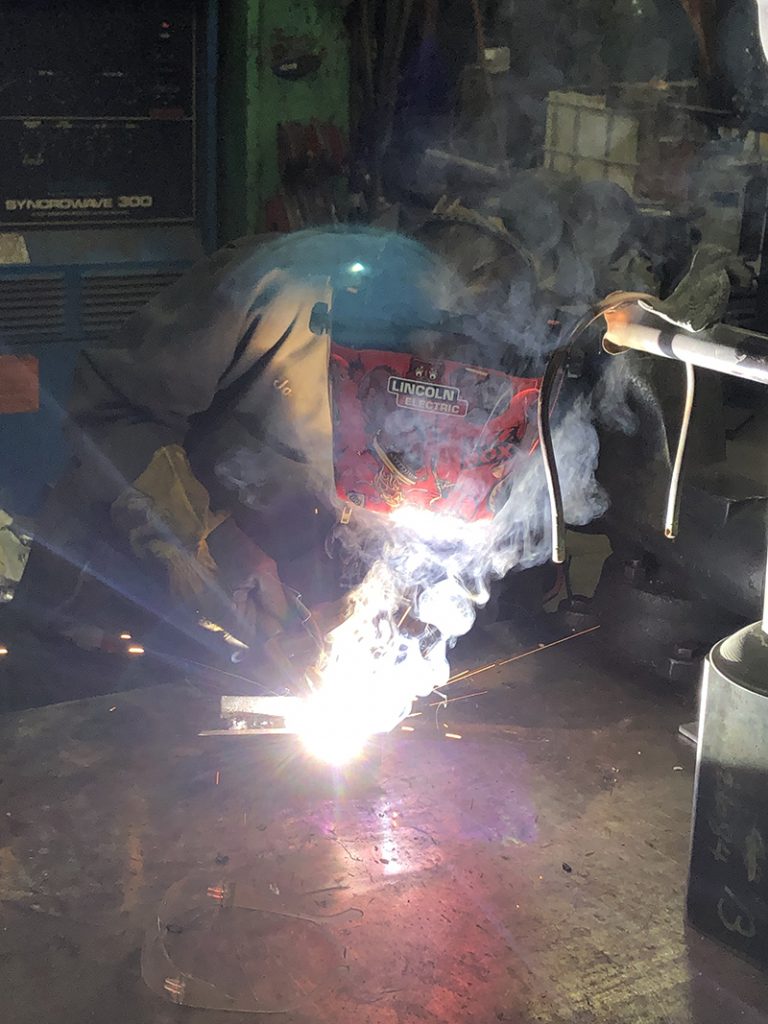Discovering the Teaching–Learning Connection in the Workplace



Good teaching sometimes requires a teacher to step into their students’ shoes in order to understand their mindset, as English professor Jo Mackiewicz has been experiencing for the past few years.
In 2018, Mackiewicz began learning how to weld at Des Moines Community College, where she once again learned how it feels to be a beginner in a new field. Over the course of the next four years, she gained a level of proficiency in the trade and discovered the topic for her next book: the teaching process in the workplace and in welding.
This was not supposed to be the topic originally. The initial plan for the book was to document the genres of technical communication that can be found in the workplace, genres such as labels, invoices, or hazard symbols. The book she had planned, much like the book it would become, would have been marketed to community college writing classes to help students prepare for the communication demands of their future workplaces.
However, as she progressed, Mackiewicz discovered that the dynamics of teaching and learning would be a more revealing study. She organized her writing into a narrative format, detailing her journey in learning a new trade in order to describe the dynamics of workplace teaching and learning. Mackiewicz describes her book’s subject as “learning through apprenticeship, not in a school setting, but on the job.”
 This style of learning, of course, has nuances that are not quite recreated in a school setting. The topics in workplaces are highly specialized, focusing on a specific task and working so that workers grow confidence through experience, as Mackiewicz describes. In her observation, learning a skill goes through different levels of proficiency marked by the student’s increasing independence from rules and instructions. Over time, in her words, “you get more ability to perceive what’s going on in a particular environment, you notice what’s relevant, and you’re able to know, ‘what does it mean?’”
This style of learning, of course, has nuances that are not quite recreated in a school setting. The topics in workplaces are highly specialized, focusing on a specific task and working so that workers grow confidence through experience, as Mackiewicz describes. In her observation, learning a skill goes through different levels of proficiency marked by the student’s increasing independence from rules and instructions. Over time, in her words, “you get more ability to perceive what’s going on in a particular environment, you notice what’s relevant, and you’re able to know, ‘what does it mean?’”
Mackiewicz’s research isn’t limited to a specific group it can help. Both students and teachers can find something valuable in understanding their place in the learning process and their next steps forward, regardless of their context or what they are learning or teaching. Her research doesn’t just apply to welding, either. It conveys important insights for participation in just about any skilled trade. So broadly applicable is the topic that Mackiewicz placed an article about her experience in the popular The Conversation publication, which disseminates academic research briefs in a wide variety of outlets for the public. Mackiewicz is currently teaching English 5060, Professional Communication Theory, and her book, Welding Technical Communication: Teaching and Learning Embodied Knowledge, can be found through SUNY Press.
